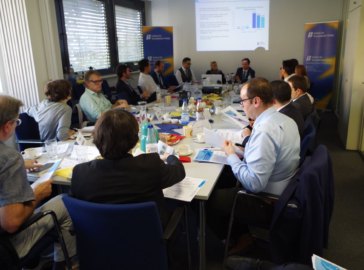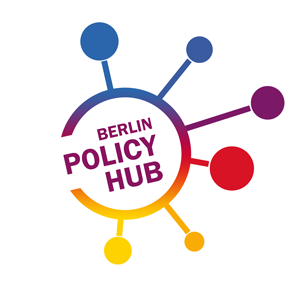Economics and Identity Politics in the Republic of Moldova – An assessment in view of the upcoming parliamentary elections

On 16 October 2018 the Institut für Europäische Politik (IEP) held a public event on “Economics and Identity Politics in the Republic of Moldova – An assessment in view of the upcoming parliamentary elections”. Guest speakers from the Moldovan Think-Tanks Expert-Grup and Institute for European Policies and Reforms (IPRE) as well as the German Council on Foreign Relations (DGAP) presented their findings and discussed the economic challenges and the role of identity politics for Moldova’s European integration process.
After opening remarks by Dr. Katrin Böttger, Director at IEP, the first panel started with an input by Adrian Lupusor, Director of Expert Grup, who provided an empirical assessment of the impact of the “Deep and Comprehensive Free Trade Agreement (DCFTA) after four years of its implementation”. One of the key findings was that the DCFTA had a positive net impact on Moldova’s trade with the EU. Agrifood producers who voiced the strongest skepticism towards the agreement benefited the most from it. Imports from the EU were not competing with Moldovan products but rather complementing domestic production. Gains from exports to the EU were to a big extent compensating losses on the CIS market caused by Russian restrictions on Moldovan products.
These economic findings laid out the basis for the presentation of a joint research paper on “Moldova as a case study of new money laundering patterns. Lessons to learn and implications for the EU” by Sergiu Gaibu, Program Director at Expert-Grup, and Andres Knobel consultant of the Tax Justice Network. From the experts’ point of view the fight against money laundering in Moldova is challenging due to the involvement of state institutions which were whitewashing illegal financial transactions. This scheme has been applied during the “Russian Laundromat” case where ill-gotten money was transferred from Russia to the US and European countries. In their analysis, Sergiu Gaibu and Andres Knobel came to the conclusion that there is a regulatory gap on the European and international level regarding the question of how to prevent the involvement of state institutions in money laundering. As potential counter-measures the two researchers proposed a revision of the recommendations provided by the Financial Action Task Force (FATF). Furthermore, training and awareness-raising for different branches of the judiciary, especially among commercial judges, would be required.
As an introduction to the second panel on “Moldovan Identity Politics in the Context of the EU Association Process”, Iulian Groza, Director at IPRE, provided a short summary of the “3rd Shadow Report on the implementation of the Association Agreement” in the Republic of Moldova. In view of the upcoming parliamentary elections in February 2019 Iulian Groza highlighted three short-term actions that should be undertaken by the EU: Firstly, the monitoring of the elections would need to be ensured. Secondly, the control of party financing would need to be reinforced. Thirdly, measures that would seek to hold Moldovan decision makers accountable would be needed.
In the presentation of their joint paper titled “Moldova’s Europeanization and interethnic cohesion – a delicate balancing act”, Stanislav Ghiletchi, Analyst at IPRE, and Sarah Pagung, Program Officer at the Robert Bosch Center for Central and Eastern Europe, Russia and Central Asia of the DGAP, concluded that the fragmentation of ethnic groups in Moldova corresponds with society’s political polarization. Instead of establishing a cohesive strategy on integrating minorities, political elites induce and profit from this polarization, thereby hindering the country’s democratic development and Europeanization. The EU should establish itself as a mediator and promote the integration of minorities, especially on the local level. The EU could furthermore use its experience in cohesion policy to contribute to the minority integration and social cohesion in the Republic of Moldova.

